A friend recently asked me if I thought her toxic ex had male narcissist traits. I told her that being narcissistic is different from being diagnosed with Narcissistic Personality Disorder (NPD), and there’s no way to know unless he gets a diagnosis through mental health professionals or a licensed therapist. But she was insistent.
She said she knew all his traits after a 5-year-long relationship. All she needed was someone to dig up some facts with her. So, here I am, with my new-found knowledge. As we know, narcissism is a personality trait that can be found in both men and women. But it often manifests differently across genders. As we discuss these personality traits ahead, remember that in men, they often form with distinct passive-aggressive behavior patterns.
Understanding these aspects of male and female narcissists is crucial not only for identifying potential narcissistic women and men in your life, but also for protecting yourself from emotional harm by creating boundaries. In this article, relationship coach Dhriti Bhavsar (MSc, Clinical Psychology), who specializes in LGBTQ and marital issues, addresses the traits of male narcissists and their subtle harmful tendencies. With her help, we will shed light on the specific attitudes of male narcissists that people around them (like my friend) have to deal with.
What Is A Narcissistic Man?
Table of Contents
In The Good Men Project article, titled ‘Confessions of a Recovering Narcissist—Or How I Learned to Be Unselfish,’ Lion Goodman wrote, “Relationships fail when partners focus too much on getting their own needs met, and not enough on the needs of the other. This results in arguments over whose needs are most important – which is almost always damaging.”
Well said. A narcissistic man demonstrates a pervasive and often problematic pattern of personality disorder characterized by a pronounced focus on his own needs, desires, and self-image. This focus is so intense that it can lead to a lack of consideration for other people’s feelings. While it’s essential to distinguish among mental disorders, narcissistic traits, and Narcissistic Personality Disorder (which is a diagnosable mental health condition), a narcissistic man typically exhibits a self-centered approach to life.
Dealing with male narcissists can be challenging, especially if they have NPD. According to the Diagnostic and Statistical Manual of Mental Disorders, “There are no FDA-approved medications for the treatment of NPD, but many patients may benefit from the treatment of symptoms, including anxiety, depression, mood lability, transient psychosis, and impulse control issues.” Addressing the problem is the first step, though. Keep reading to know more about narcissist traits in males.
11 Common Male Narcissist Traits In Relationships
Narcissistic traits in men can show up distinctly within the context of relationships, causing unique challenges for their partners. While not all men who exhibit these traits have Narcissistic Personality Disorder NPD, or antisocial personality disorder, or any kind of mental disorders, recognizing their narcissistic approach and common behaviors is crucial for those in relationships with them.
In the following sections, we will watch out for prominent traits of male narcissists, shedding light on their haughty behaviors that can help you navigate their narcissistic tendencies. Remember that while recognizing these traits is essential, diagnosing someone with Narcissistic Personality Disorder should be left to mental health professionals or a licensed therapist.
Here are 11 prominent male narcissist traits in romantic relationships, explained in detail:
Related Reading: 21 Stages Of A Narcissistic Relationship With An Empath
1. They have an excessive need for attention in relationships
This is one of the overt narcissist traits males show with their partners. While some level of self-focus and a desire for recognition are normal, narcissistic behavior becomes problematic when it disrupts an individual’s life and the lives of those around them. Here are some common traits:
- Their excessive attention-seeking behavior can lead to a highly demanding and one-sided dynamic. They want excessive admiration and need you to constantly talk about them
- The partner of a male narcissist may find themselves constantly needing to reassure and compliment the narcissist
- This can be emotionally exhausting as your own needs for affirmation and support often take a back seat
2. They will manipulate you emotionally
Male narcissists use emotional manipulation tactics, such as guilt-tripping which can make the partner feel responsible for the narcissist’s happiness, even when it’s unreasonable. Gaslighting, a very common form of narcissistic abuse, can lead to confusion and self-doubt. Emotional detachment phases and other manipulative tactics can create a toxic atmosphere where the partner feels trapped in the relationship.
Dhriti says, “In relationships, narcissistic men often:
- Play the victim card to avoid accountability
- Engage in gaslighting to make you doubt your own reality
- Use love bombing and ghosting to keep you on an emotional rollercoaster
- Can be vengeful and hold onto grudges.”
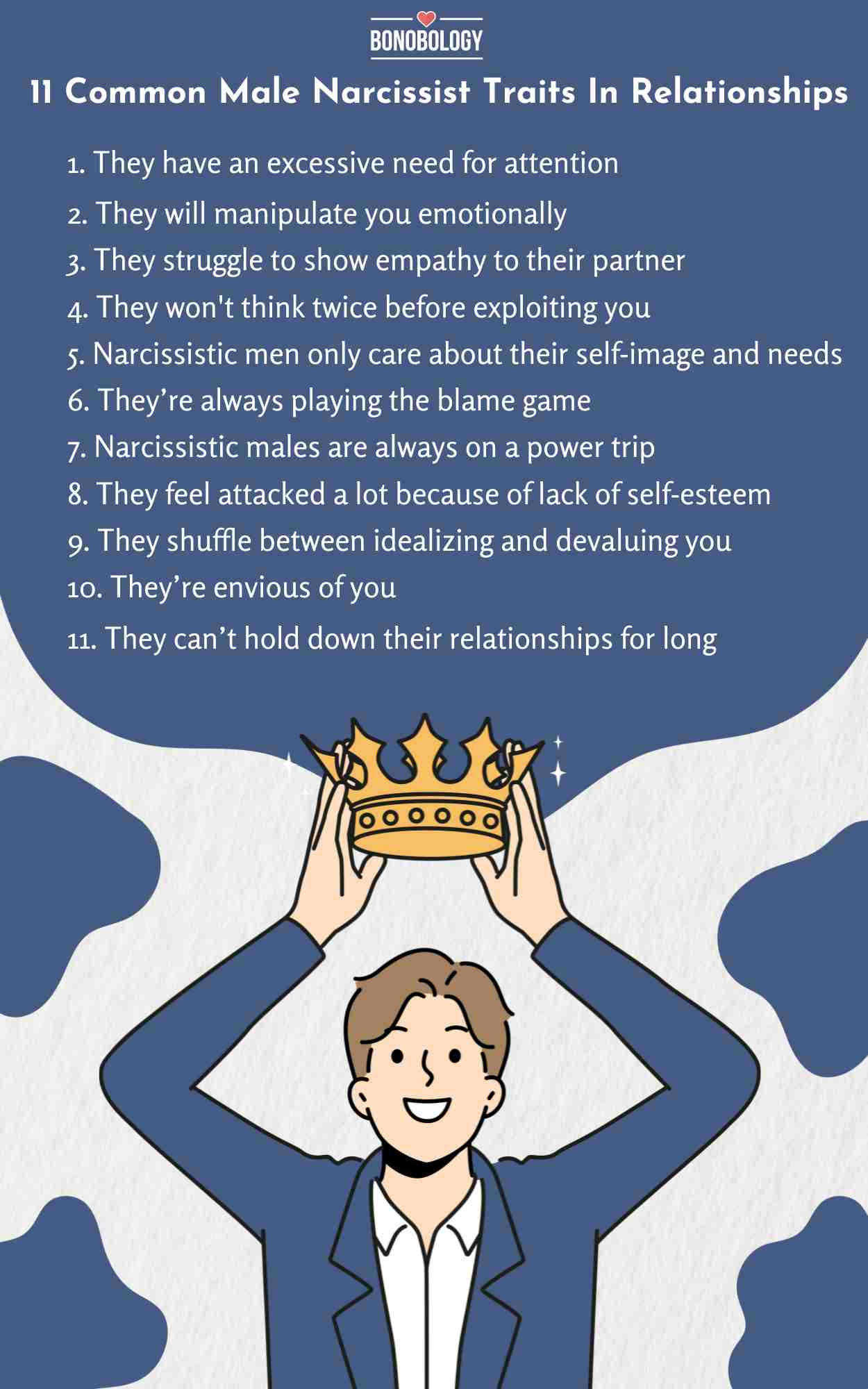
3. A common trait among male narcissists: They struggle to show empathy to their partner
Are you dating a narcissist? Lack of empathy is one of the major narcissist traits in males, as you must know already. And because they lack empathy, it makes it challenging for them to connect with you on a deep, emotional level. The self-importance preoccupation of male narcissists makes it difficult for them to be genuine. Here’s how your intimate bond is affected:
- Your emotions and experiences are often invalidated and dismissed
- This can leave you feeling unseen, unheard, and unimportant
- Over time, this lack of empathy erodes the emotional connection in the relationship
Related Reading: Empath Vs Narcissist – The Toxic Relationship Between An Empath And A Narcissist
4. They won’t think twice before exploiting you
Narcissists tend to prioritize their own interests and self-care above all else. This pursuit of attention and affirmation can lead them to engage in behavior that manipulates or exploits those around them. This exploitation can take form in various ways:
- Self-obsessed men may take advantage of your financial resources
- They may use your social connections for their own agenda
- They may rely on you for emotional support constantly without giving anything in return
This leaves you feeling used and unappreciated, which can damage your self-esteem and overall well-being.
5. Narcissistic men only care about their self-image and needs, even at the cost of yours
Male narcissists have a grandiose sense of their life; they can even create unrealistic expectations for their partner. Here’s what it looks like:
- They may expect you to cater to their every need, disregarding your own desires and boundaries
- This inflated sense of self can strain the romantic relationship, as it becomes one-sided
- You will never find them being self-deprecating about themselves
Dhriti says, “Such men exhibit the same behavior and entitlement everywhere, including romantic relationships. They do this through sexual demands, financial control, and monopolizing their partner’s time and attention. These actions erode boundaries, stripping partners of their agency and leaving them feeling suffocated.”
6. They’re always playing the blame game in a relationship
This is one of the most overt narcissist traits males show. A man like this takes advantage of the situation at hand and deflects blame and responsibility, hence conflicts often remain unresolved. You may feel like you are constantly walking on eggshells. You fear any discussion that might lead to the blame being shifted on you. This avoidance of accountability by male narcissists can lead to an unhealthy and frustrating communication pattern between the couple.
7. The partnership can’t be equal as narcissistic males are always on a power trip
Male and female narcissists often view themselves as exceptional or unique, with an overarching belief in their superiority. Maintaining this inflated sense of control and dominance often results in imbalanced power dynamics within the relationship. Male narcissists may maintain power by:
- Limiting your independence
- Making decisions unilaterally
- Undermining your self-esteem. This control can make you feel helpless and dependent on them
8. Male narcissists feel attacked a lot because of lack of self-esteem
The signs of low self-esteem hidden beneath the grandiose narcissism makes it difficult for such men to handle criticism or perceived threats to their self-worth. This emotional volatility can lead to a thick atmosphere of tension for you, as you fear triggering a defensive or angry response even in random conversations.
Dhriti explains, “Narcissist behavior in men is displayed by a fragile self-esteem that tends to be emotionally reactive, making you walk on eggshells. They retaliate fiercely to criticism, viewing it as a deep insult to their core. Their confidence masks a fragile ego, which leads to defensive behavior and an inability to handle jokes or critiques gracefully.”
Related Reading: A Rundown On What A Narcissist Does At The End Of A Relationship
9. They shuffle between idealizing and devaluing you
The cycle of idealization and devaluation can be emotionally confusing for partners. In the initial stages of the relationship, you may be showered with excessive admiration, affection, and praise, but as the relationship progresses, you might suddenly be devalued and criticized. This inconsistency by male narcissists can cause emotional turmoil.
Dhriti says, “Narcissists create a rollercoaster of emotions by initially making partners feel cherished and valued, only to withdraw affection later. This hooks the partners emotionally, making them crave the lost validation. This cycle taps into our brain’s reward system, similar to substance addiction, leaving you grappling with withdrawal-like emotions when the narcissistic love bombing ends.”
10. One of the most covert narcissist traits in males — They’re envious of you
The competitiveness and envy of a narcissistic person can lead to a hostile and unsupportive environment for their partner. Instead of celebrating your achievements, they may belittle or downplay them, making it challenging for you to thrive or feel secure in your accomplishments. You might eventually stop sharing what brings you joy and pride.
11. They can’t hold down the relationship with you for long
Due to their passive-aggressive behavior and possibly some personality disorders, maintaining a healthy, long-term relationship can be exceptionally challenging. There are repeated relationship formation attempts and failures. This turmoil can leave you emotionally drained, struggling to find stability and happiness in a relationship with a narcissistic man. It often takes therapy or a significant personal transformation for male narcissists to build and maintain lasting, healthy relationships.
Characteristics Of A Narcissist Man
Narcissistic Personality Disorder is a complex and often challenging mental health condition characterized by a pervasive pattern of behaviors, thoughts, and emotions. When examining the characteristics of male narcissists, it’s essential to understand that not all individuals with narcissistic traits meet the criteria for Narcissistic Personality Disorder NPD. However, certain traits are commonly associated with such men and can significantly impact their romantic relationships and interactions. Here are some key traits:
Related Reading: 30 Manipulative Things Narcissists Say In An Argument And What They Actually Mean
1. One of the major characteristics of a narcissist man is grandiosity
Narcissistic men often have an over-inflated sense of self-importance. According to a study on NPD, “Often, persons with grandiose narcissism can present with heightened mood and more energy when excited by a new idea, which may initially point to a hypomanic/manic presentation.”
Narcissistic Personality Disorder NPD is characterized by a pervasive pattern of grandiosity, a need for admiration, and a lack of empathy. This inflated sense of self can result in haughty behaviors such as bragging about achievements and expecting constant admiration.
2. Need for admiration
Narcissistic men tend to have a constant need for admiration and validation. This is because male narcissists seek praise and recognition from others to bolster their fragile self-esteem. This need for admiration can drive them to engage in attention-seeking behaviors, like stealing the spotlight from those around them.
Dhriti adds, “Narcissist behavior in men is indicated by craving the spotlight, often overshadowing your achievements by making it about them. To them, people are possessions and they use your success to boost their image. If you are living with a narcissist husband or boyfriend then you must already know how this self-centered behavior, combined with histrionic tendencies, leaves people feeling unimportant, overshadowed, and pressured to constantly please the narcissist.”
3. Lack of empathy
Male narcissists tend to lack empathy. They may struggle to recognize people’s feelings, and it’s hard for them to care about the emotions and needs of others. Their lack of genuine empathy can result in a depleting emotional connection and understanding in their relationships.
4. Male narcissists tend to have manipulative behavior
They are skilled manipulators. They may use love bombing, silent treatment, flattery, or manipulation to achieve their goals or to control and exploit others. This manipulation can take on various forms, such as guilt-tripping, gaslighting (making someone doubt their perceptions or feelings), or employing emotional manipulation tactics to get what they want.
5. Sense of entitlement
Male narcissists tend to demand privileges, regardless of their actual accomplishments. Entitlement is one of the most common characteristics of a narcissist man. After all, narcissists tend to believe they are exceptional, unique, and entitled to special treatment and recognition. When others don’t meet their expectations or cater to their desires, they may become resentful or angry, viewing any perceived slights as personal affronts.
6. Difficulty in maintaining relationships
Narcissistic behavior can strain relationships. Their self-centeredness, need for constant validation, and lack of compassion are some of the reasons why narcissists can’t sustain long-term, intimate relationships. Narcissists are generally unhappy in their personal relationships. Partners and friends may find it exhausting to continually meet the narcissist’s demands for praise.
7. A fragile self-esteem is among the common traits of narcissistic men
Dhriti adds another aspect, “Dealing with a narcissistic partner can shatter your self-esteem and confidence too, making you reliant on their validation. Your emotional boundaries blur, tying your well-being to their approval, similar to living in a world where Barbie has a good day every day, while Ken only does when Barbie looks at him.”
Some common traits of a male narcissist include lack of self-confidence and low self-esteem. Paradoxically, that’s what lies beneath their inflated sense of grandiosity. They are hypersensitive to criticism and often react with rage or defensiveness when their self-worth is challenged. This can create a volatile atmosphere in their relationships.
8. Exploitative behavior
They exploit others for personal gain, whether in the workplace, friendships, or romantic relationships. They may showcase their narcissistic behavior subtly and use people as a means to an end, without genuine concern for their limitations. The same behavior can result in emotional abuse, harming the trust and well-being of those around them.
Dhriti adds, “Narcissistic men often employ a charming facade to butter up those who can assist them, making you feel like their closest ally and inspiring you to help them willingly. They may also resort to using blackmail when it serves their personal interests.”
Related Reading: How To Make A Narcissist Miserable — 13 Things To Do
9. Fantasies of power
Some covert narcissist traits males have include fantasies of power. Narcissists tend to harbor grandiose fantasies about achieving power, unlimited success, or physical appearance beyond what is realistic. These narcissistic behaviors can drive their relentless pursuit of admiration, recognition, and validation. They see themselves as high-status people in every way.
10. Arrogance is commonly found in self-obsessed men
Arrogance and a sense of superiority are common traits in a male narcissist. Narcissists tend to have a distorted sense of self-importance, so they demean or belittle their partners and other people as well to bolster their own ego, viewing themselves as better or more important. This arrogance can create a hostile and unpleasant atmosphere in their personal dynamics.
Dhriti suggests, “Handling a narcissistic partner calls for a strategic approach.” Here are some tips from our expert:
- Start by crafting a solid exit plan
- Deprive them of emotional reactions, and you’ve taken away their power
- Maintaining emotional distance in every way is key
- Remember, the best defense is limited contact — Preserve your peace by minimizing interactions

11. Difficulty handling criticism
A male narcissist typically has a poor tolerance for even the slightest criticism they receive, even when it is constructive. They may showcase narcissistic behavior by reacting with anger, defensiveness, or hostility when their actions or abilities are questioned. This difficulty in receiving feedback can hinder personal growth and the resolution of conflicts.
12. Devaluation of others
This is one of the most common traits of narcissistic individuals. Their sense of self-importance cannot not be touched but they can freely play with the emotions of others. Male narcissists tend to initially idealize someone, placing them on a pedestal, but later devalue them when their perceived flaws become apparent. This pattern can be emotionally exhausting for those in their orbit, as they never know when they will be praised or criticized.
Related Reading: No Contact With A Narcissist – 7 Things Narcissists Do When You Go No Contact
13. Competitiveness and envy are male narcissistic tendencies too
Competitiveness is one of the major signs of a narcissist man. They may engage in unhealthy competition with others and express envy when others achieve unlimited success or recognition. They may perceive any accomplishment by others as a threat to their own self-esteem, making it challenging for others to enjoy their achievements without facing resentment or competitiveness.
Key Pointers
- A narcissistic man is someone who is preoccupied with his own needs, desires, and self-image, unaware of others’ feelings and well-being. These traits of self-centeredness frequently lead to a lack of empathy
- Signs of a narcissist man include an excessive need for attention, exaggerated sense of self-importance, exploitative behavior, and difficulty maintaining long-term relationships
- Narcissistic men typically exhibit traits such as grandiosity and a fragile self-esteem, at the same time
- Because of their self-centeredness and emotional manipulation, relationships with narcissistic men can be difficult. Partners are frequently trapped in one-sided dynamics, leaving them emotionally drained, harmed, and invalidated
- It’s important to note that narcissism exists on a spectrum, and not every individual displaying narcissistic tendencies will have Narcissistic Personality Disorder
Understanding the nature of narcissism is the first step in effectively managing these relationships, whether through setting emotional boundaries, seeking therapy, or making informed decisions about how to engage with such individuals while safeguarding your own emotional well-being. Recognizing these characteristics in a male narcissist, such as an exaggerated sense of self-importance, a constant need for admiration, and a lack of concern, can be a valuable tool in protecting oneself from emotional manipulation.
It is critical to remember that narcissism is a spectrum disorder, and not all people who exhibit these traits have Narcissistic Personality Disorder. Addressing the narcissism of a partner can help encourage personal growth and change, especially in those who are unaware of the impact their behavior has on others.
9 Common Narcissist Gaslighting Examples We Hope You Never Hear
Your contribution does not constitute a charitable donation. It will allow Bonobology to continue bringing you new and up-to-date information in our pursuit of helping anyone in the world to learn how to do anything.

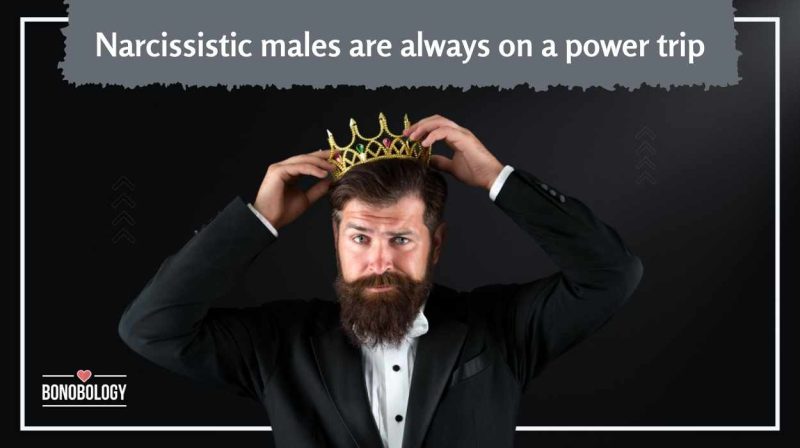


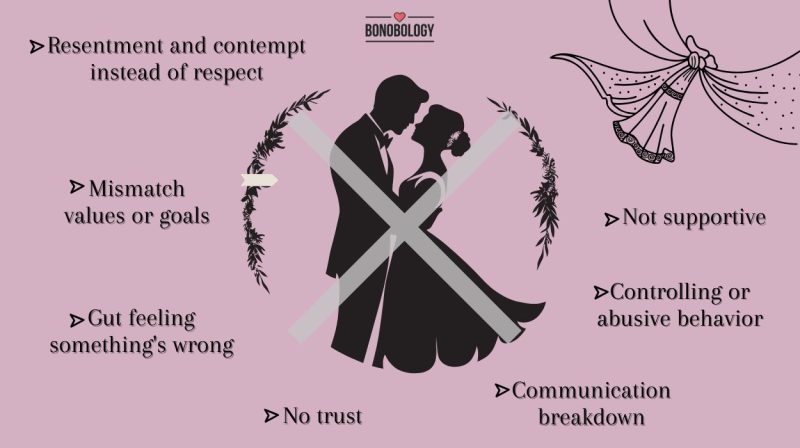

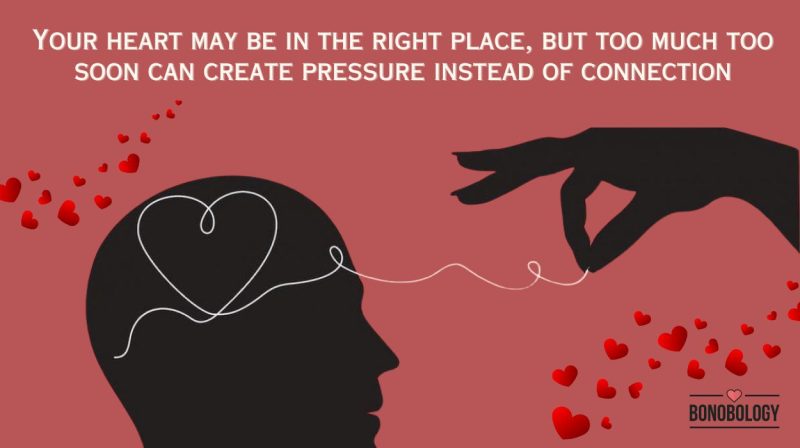










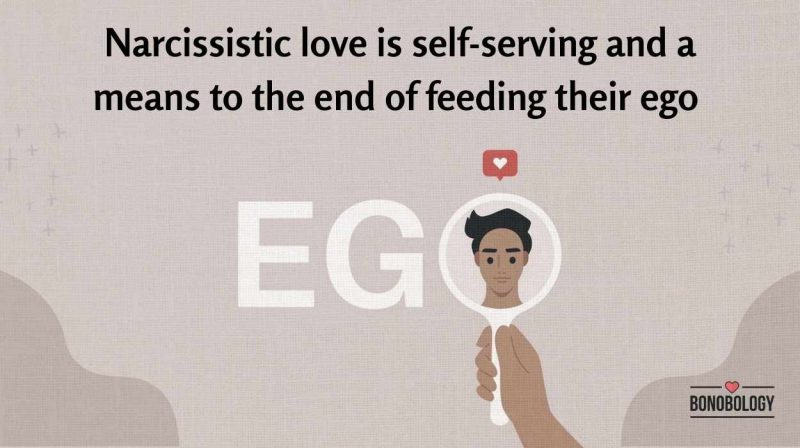




Featured
17 Red Flags In A Relationship To Be Wary Of
What Is A Trophy Wife?
7 Signs You Should Not Marry Him
Signs A Guy Is Obsessed With You In A Bad Way: 15 Red Flags
Unintentional Love Bombing: 9 Ways You May Be Overwhelming Your Partner
13 Signs Of A Hot And Cold Relationship & How To Break The Pattern
21 Subtle Signs You’re Not Really In Love With Your Partner
I Hate My Girlfriend: Why You Feel This Way And What To Do
When Health Challenges Affect Your Relationship Dynamics
5 Harsh But True Signs He’ll Never Marry You
21 Signs That You Are Alone In A Relationship
11 Situationship Red Flags You Should Know About
Why Do I Get Attached So Easily? 9 Possible Reasons and Ways to Stop
How To Respond To DARVO: Expert Lists 7 Strategies
What Is Fexting, And Why Is It Bad For Your Relationship?
Are Narcissists Capable Of Love?
Why Does My Girlfriend Hit Me? Expert Shares 11 Possible Reasons And Ways To Cope
How Does A Narcissist React When They Can’t Control You?
“My Anxiety Is Ruining My Relationship”: 6 Ways It Does And 5 Ways To Manage It
13 Distinctive Traits Of Female Narcissists Revealed